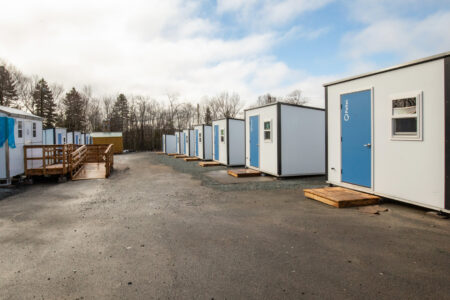
The Trudeau government took office last fall announcing it would reverse Canada’s lagging productivity and competitiveness by investing in social innovation. But it has broken new ground by stating that for its social innovation strategy to succeed, it will require greater collaboration across all ministries as well as between government, industry and research institutions. And it is calling for social innovation across all government departments.
While there is no single definition of social innovation, key organizations and networks such as the Réseau québecois d’innovation sociale in Quebec, the Stanford Center for Social Innovation in the United States, and the Young Foundation in the United Kingdom all agree that social innovation is about process. It is about new ways to meet today’s complex social, economic and environmental challenges within organizations, institutions or enterprises in all sectors. Quebec is well positioned to build on its leadership in spearheading initiatives that are transforming the lives of people and communities throughout the province. This is especially true for the social economy in Quebec.
The social economy includes all cooperatives and not-for-profit organizations and enterprises engaged in commercial activity. There are more than 7,000 social economy enterprises throughout the Quebec economy, in diverse sectors that include health and social services, housing, manufacturing, culture, food, tourism, and in the “new economy.” They employ approximately 150,000 people and represent about 8 percent of the province’s gross domestic product (GDP). These enterprises integrate a commitment to greater equity, stable and quality jobs, and sustainable development into their business model. Social economy enterprises produce goods and services in old and new sectors of activity, from daycares to web design; from manufacturing to information and communications technology; from homecare to recycling.
For La Guilde des développeurs de jeux indépendants du Québec, a cooperative of “interactive technology developers,” cooperation and co-creation underlie the digital or so-called fourth industrial revolution. La Guilde has adopted a democratic, cooperative business model. The same holds for Projet Sol, a not-for-profit consortium that provides restaurant services to the Planetarium and Biodome. It uses local produce and trains half of its employees so they can be reintegrated into the labour market. Few people are aware that la Tohu, Montreal’s internationally renowned not-for-profit circus theatre, provides job training and creative opportunities for vulnerable youth in the neighbourhood of St. Michel. A recent study reveals that the vast majority of these young people find permanent employment and/or continue their education. Even students are driving the social economy, through initiatives such as the PUSH Fund, recently launched by the Concordia Student Union to finance new affordable cooperative housing for students.
The social economy is also characterized by innovative partnerships designed to mobilize and share knowledge. The Champ des possibles is the symbolic name given to the former industrial district hemmed in by the CP tracks in Mile End. It is now home to Temps libre, a cooperative that is revitalizing the community through innovative ventures such as the first co-working space for the growing number of self-employed parents in the neighbourhood. It has also launched an initiative called Espaces temps, where collaborators from Concordia University are working on experiential learning projects that span the sciences and the arts and promote civic engagement.
These cooperatives and not-for-profit enterprises in the social economy are represented by the Chantier de l’économie sociale, an umbrella of networks across Quebec offering customized labour market, business development, research and financial tools, and providing an integrated, coherent “system of social innovation” that is dedicated to meeting today’s social, economic and environmental needs in novel ways. It is the architect of a dynamic and organic ecosystem built on collaboration with organizations, movements, academic institutions and government to improve the lives of people and communities across the province. Social innovation is at the heart of the success of the social economy. The new mandate for all ministries in the federal government to incorporate social innovation into their mandate should result in greater support for the social economy in Quebec and across Canada. This means taking seriously the commitment by the federal government to promote social innovation and collaborate in the design of new strategies for the well-being of all Canadians.
Do you have something to say about the article you just read? Be part of the Policy Options discussion, and send in your own submission. Here is a link on how to do it. | Souhaitez-vous réagir à cet article ? Joignez-vous aux débats d’Options politiques et soumettez-nous votre texte en suivant ces directives.







